The warm-up men and women: Who do Graham Norton and Alan Carr rely on to get big laughs?
Alan Carr and Graham Norton won't crack a joke without them – so what does it take to be a top warm-up act? Gerard Gilbert joins the live studio audience to find out
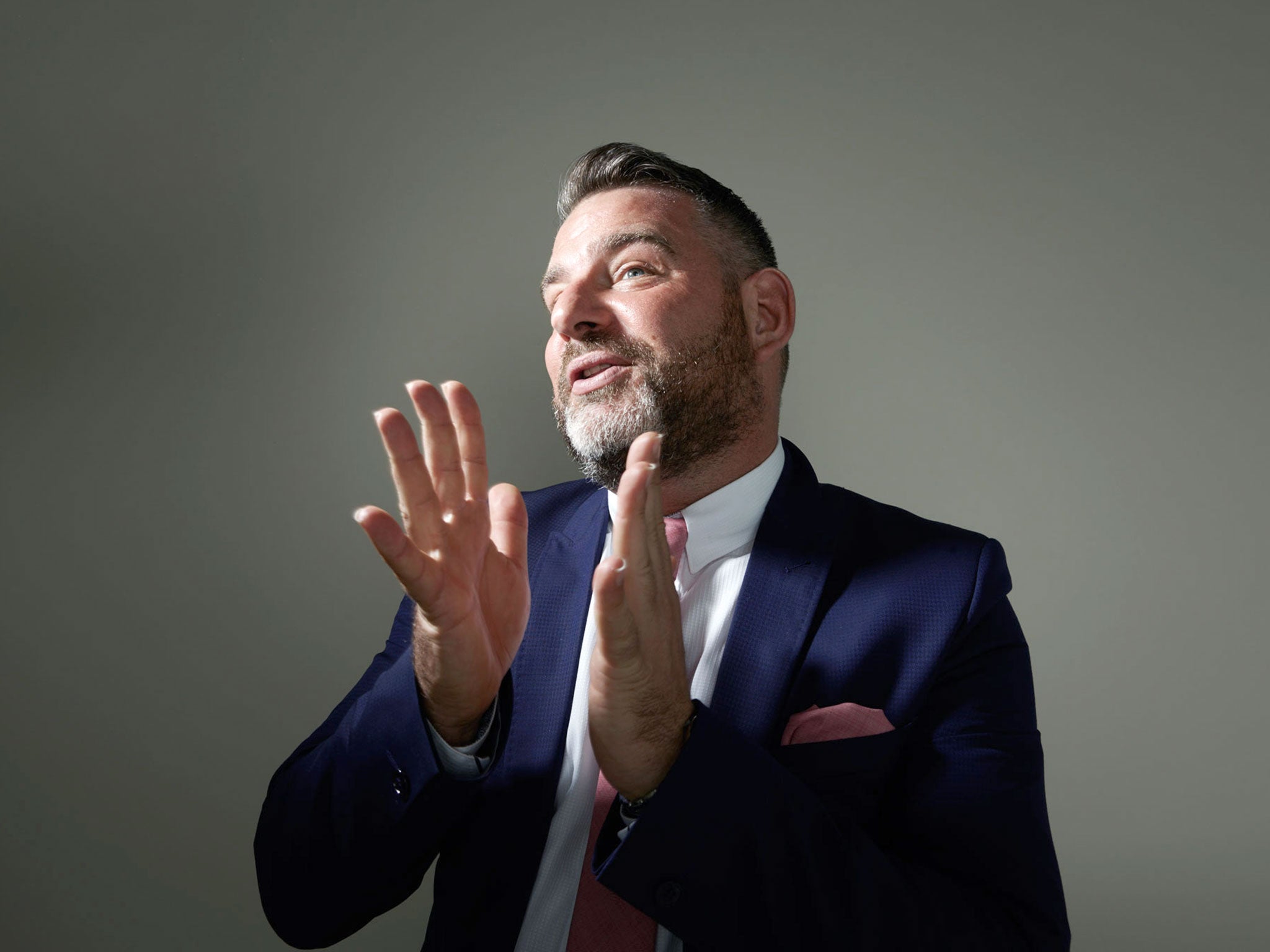
Watching a television chat show or sitcom being recorded is some people's idea of a cheap night out – but it comes at a price. Because being in a studio audience is not the same as sitting on your sofa at home. You may start the evening buoyed by the thrill of rubbing shoulders with your favourite TV star; you're more than likely to end it by stumbling from the studio, dazed after hours of reshoots.
The job of keeping studio audiences' minds off their numb bottoms falls to the warm-up man or woman, usually a comedian – although some, like the impossibly busy Andy Collins, don't see themselves in that light. "I really don't class myself as a comedian," he says flatly. "I'm a warm-up man."
We speak after I have watched him add some fizz to the 500-strong audience for Alan Carr: Chatty Man. It's 6pm on a Wednesday night and he has us jumping out of our seats, shouting as loudly as we can, practising our whoops and generally losing our inhibitions. He tells me about his upcoming, typical week.
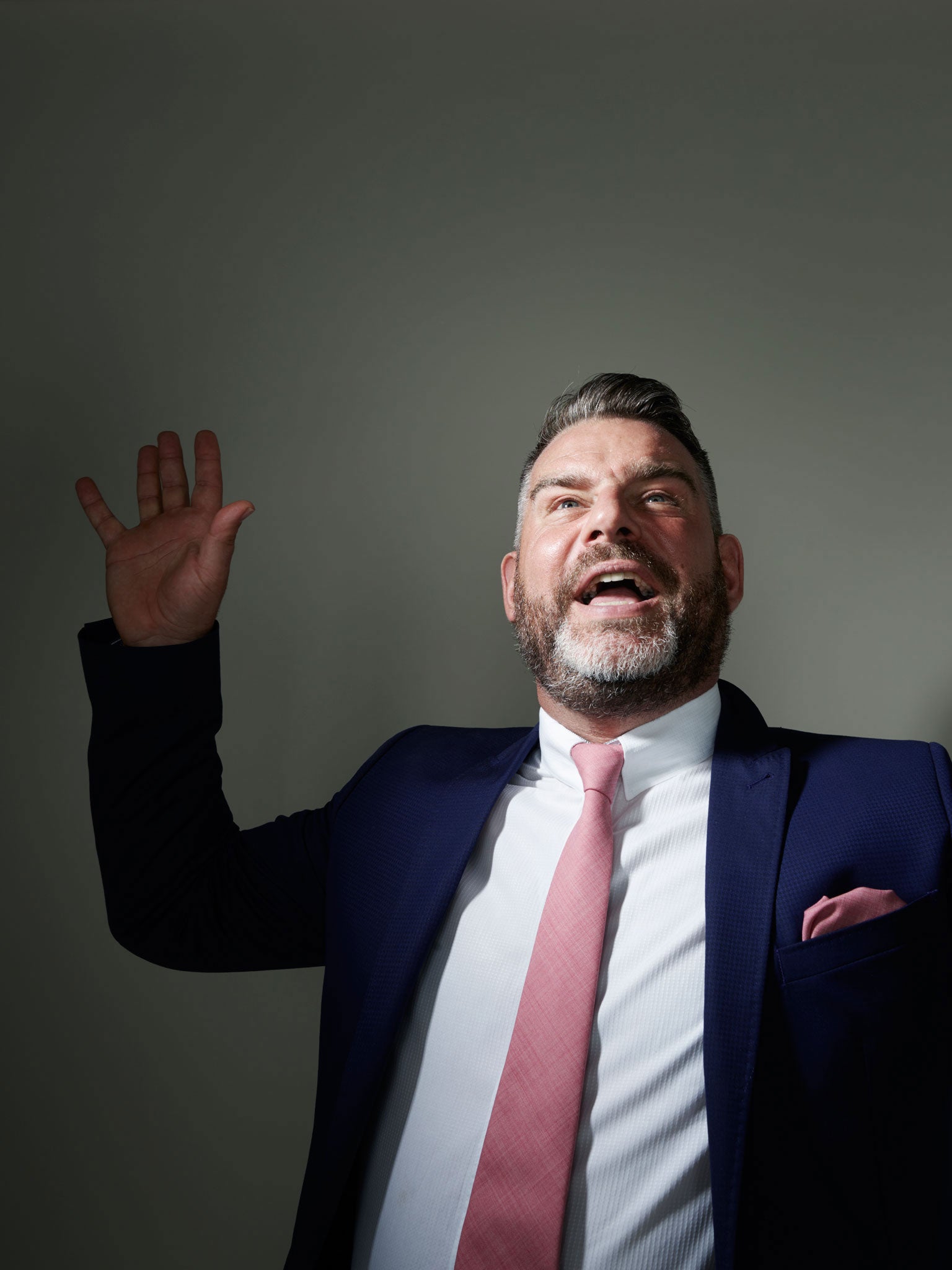
"On Sunday I'm doing the X Factor auditions up in Manchester; there'll be thousands and thousands of people outside and my job is to keep them all entertained. On Monday, I've got Paul O'Grady; Tuesday, two Paul O'Gradys – and then I jump on a motorbike to scream over to Elstree for Big Brother. On Wednesday, it's two more shows for Paul O'Grady; I finish at 6pm and then at 6.04pm, I'm on stage doing Alan Carr: Chatty Man."
Carr himself started out as a warm-up man, for Jonathan Ross, while Peter Kay, Jimmy Carr and Jack Whitehall all paid their dues energising audiences, so Collins is not entirely accurate when he says the warm-up is "always the bridesmaid but never the bride" – even if he himself has no ambition to wear the proverbial dress.
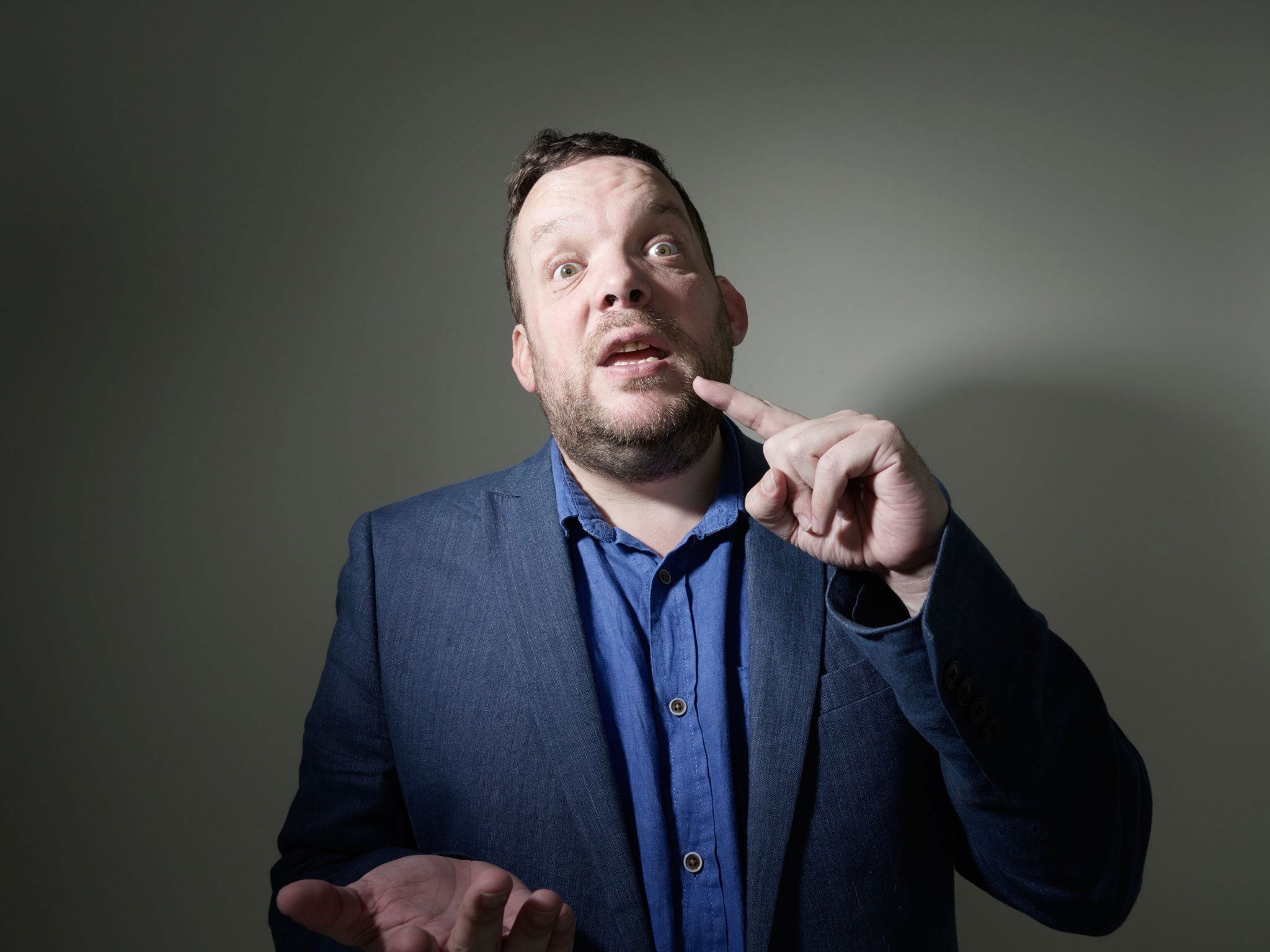
Mark Olver started out doing stand-up with Russell Howard, often sharing hotel rooms on tour, but is now another extremely busy warm-up man. "I still see myself as a comic – I'll try to do at least one small gig in the week to try new material," he says when I catch up with him en route for Manchester and 8 Out of 10 Cats Does Countdown, before he heads back south to Elstree Studios in Hertfordshire for back-to-back episodes of Pointless. "I do Thronecast [Sky's after-show for Game of Thrones fans], The Last Leg on Channel 4 is one of mine, and I also do Jonathan Ross's shows and Alan Carr."
Olver's most long-standing and lucrative gig is Deal or No Deal, the Noel Edmonds-hosted Channel 4 game show that films 80 days a year in Olver's native Bristol, several episodes being shot each day. The pay is significantly better (five or six times so) than a club night on the stand-up circuit. "The thing about stand-up is that the money hasn't improved over the years," he says. A former careers adviser working in prisons, Olver describes his job as being "to make that audience as noisy as possible".
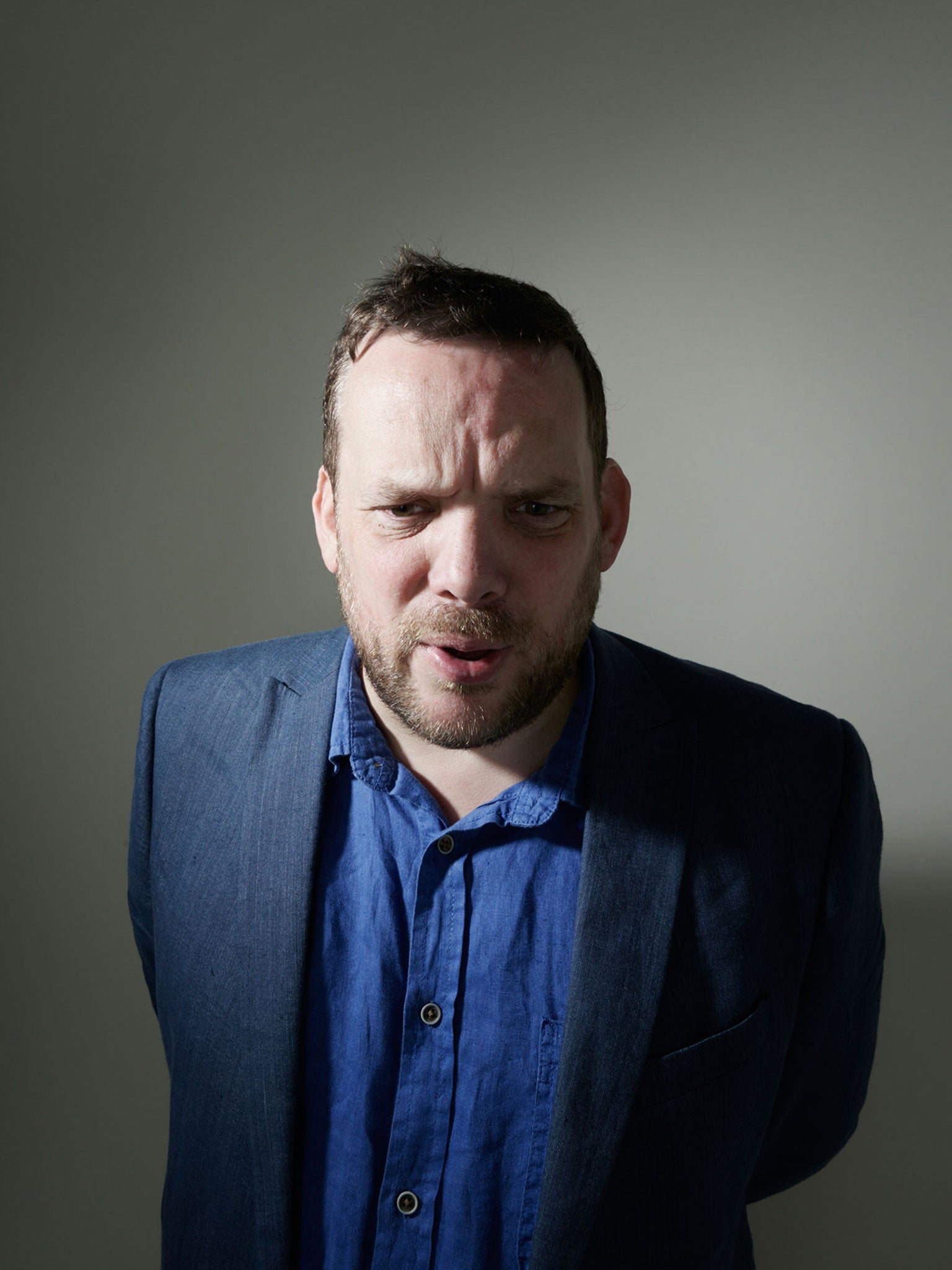
A common complaint among warm-ups is when the audience doesn't seem to understand why they're there at all. "One of the toughest jobs in TV is making people laugh when they're there to watch someone else," says Joe Bor, who has worked on The Graham Norton Show and warmed up the audience for the recent series of ITV's Vicious. "On the other hand, after I'd done warm-up for Graham Norton, an Austrian woman said to me, 'Oh, you're a very good audience heater.' I quite liked that; it describes what we do, getting them to the right temperature. Although I've been thinking recently that it's a bit like being an air steward: explaining to everyone what sort of journey we're about to go on, where the exits are and what happens in an emergency."
An ability to think on one's feet is also key – not least when tricky stars are scheduled to make an appearance and time must be filled. "I did warm-up for Alan Carr recently and Naomi Campbell was more than an hour late," says Bor.
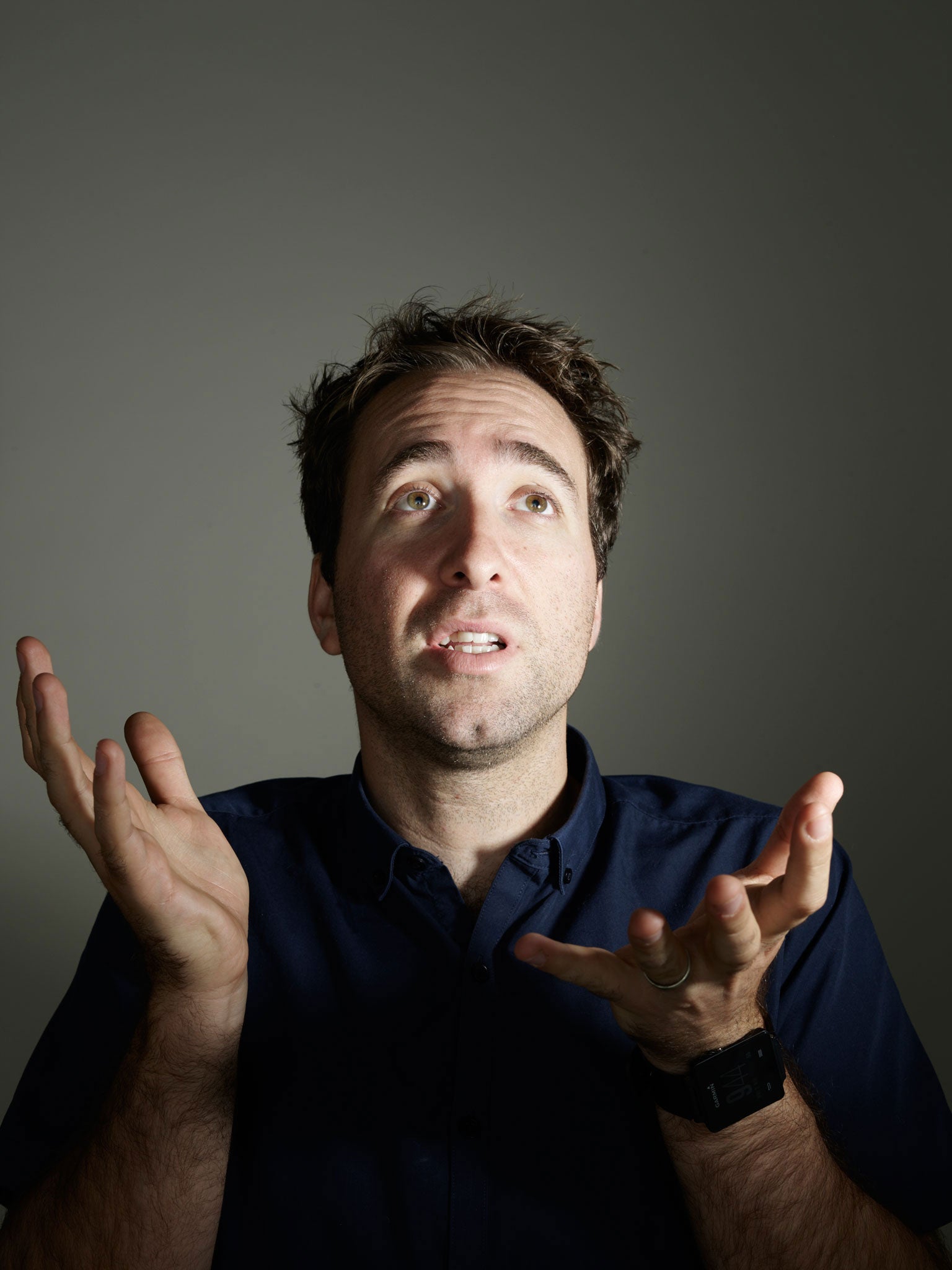
And there's never any doubt as to who's the star: "Often we don't get a dressing room," says Olver. "I know disabled toilets very well in certain TV studios, from changing in them. But what I worry about is people who do warm-up to get famous – some warm-ups have got into trouble for taking selfies with famous guests. Others approach the production team about getting on the show. I do Alan Davies: As Yet Untitled on Dave and if we get a fourth series, the producers have said, 'We'll definitely try to get you on the show.' But I would never go up to those producers and say, 'You should get me on the show' or 'I could be writing on this show.'"
Though that's not to say it can't lead to a writing gig, as Jo Caulfield, a stand-up and former warm-up woman for Have I Got News for You, discovered when she was hired to script gags for Graham Norton, having been the Irish star's warm-up since his first Channel 4 chat show, So Graham Norton. "Graham didn't want a male stand-up," Caulfield told me last year, "because all the ones doing warm-up at that time were very old-school, Jimmy Tarbuck-style."
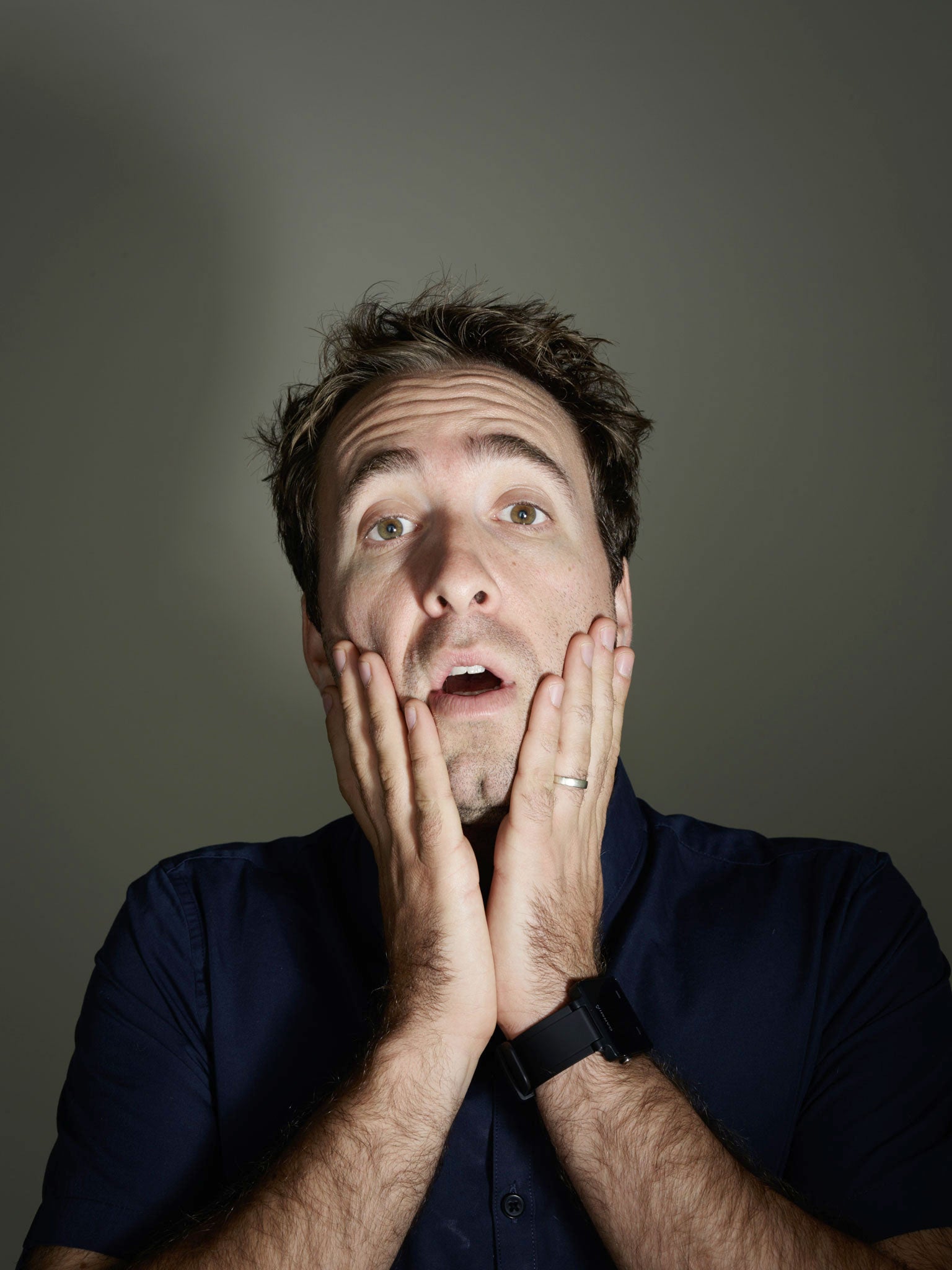
Norton continues to hire female warm-ups, his latest recruit being Ellie Taylor. "My agent was saying they needed some new people and asked whether I wanted to do it," says the 31-year-old, who recently starred in the Comedy Central sitcom Brotherhood. "When I've been on shows as a guest, I'm backstage, so I don't usually hear what the warm-up is saying, so I went and watched a couple of people do it and thought, 'Actually, I reckon this is do-able.' The audience is usually excited to be there; it's just getting a good chat with people.
"It is well paid compared with going down to a pub and getting £50 to headline," she adds. "But while it's a very lucrative part of the shtick" – paying up to £600 a show, depending on experience – "I didn't get into comedy to do warm-up."
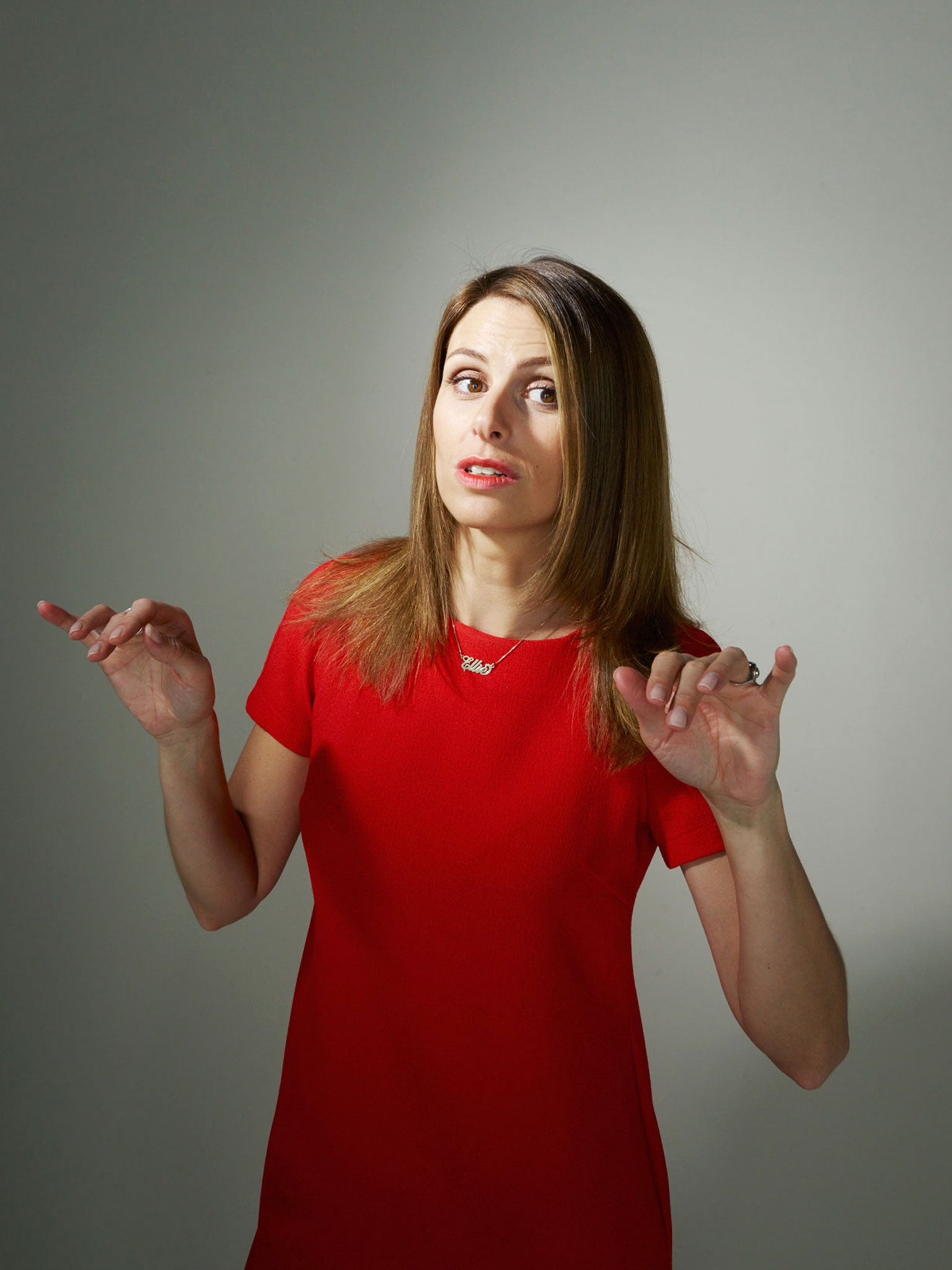
Traditionally, however, the former was actually easier to get into than the latter. Andy Collins reveals that, "Back in the day, warm-up was a closed shop. Ted Robbins, who used to be Cilla Black's personal warm-up man, got me in. He will always be my Yoda; he taught me the way of warm-up." Which is? "It's not just what you do on stage, it's also how you deal with the bullshit, as we used to say in the Navy. [Collins joined the Royal Navy and served on a minesweeper during the first Gulf War.] Like the 18-year-old just out of media class who's now holding the clipboard and teaching you to suck eggs – or dealing with the stroppy presenter who won't say hello to anybody.
"Every warm-up has a speciality," he adds. "Sitcoms, I think, are incredibly difficult; it's long and slow, but people like Bobby Bragg – he's Harry Hill's guy – are good at them."
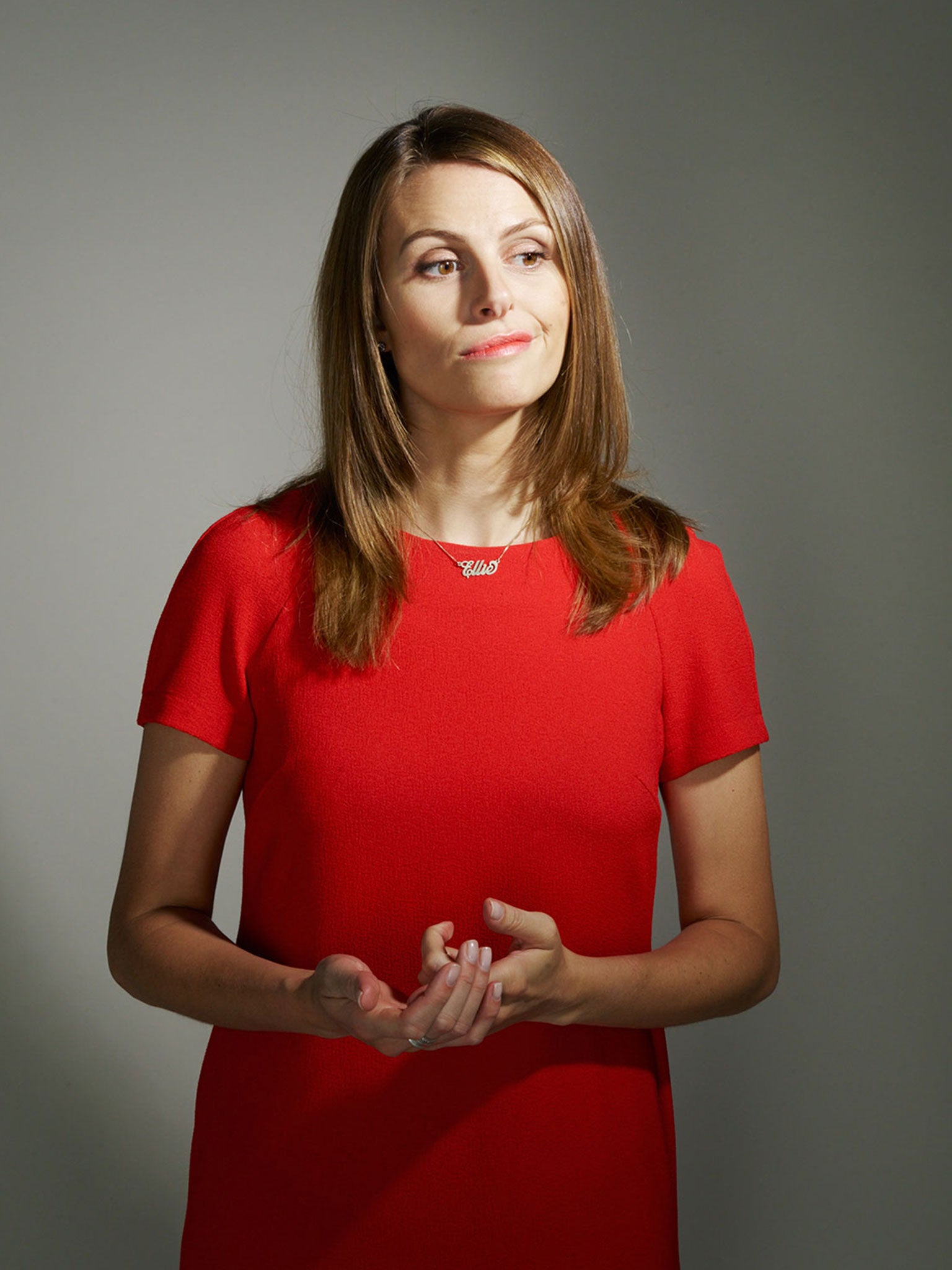
As it happens, I have seen Bragg in action, at a recording of the BBC sitcom Count Arthur Strong at Pinewood. A wily, relaxed performer with a lifetime's worth of stories and gags, he managed to stem any mutinous feelings among the sore-arsed audience during a typically disjointed shoot that dragged on for five hours.
"Sitcoms are where you really earn your money," agrees Joe Bor. "You need about two hours of material, and sometimes when they have to reshoot a scene, the audience laughter can be hard to replicate." Just as tough, he says, is "when you get the audience really laughing and the show itself doesn't go down so well. I've heard a producer say, 'Don't be too good.'"
Join our commenting forum
Join thought-provoking conversations, follow other Independent readers and see their replies
1Comments